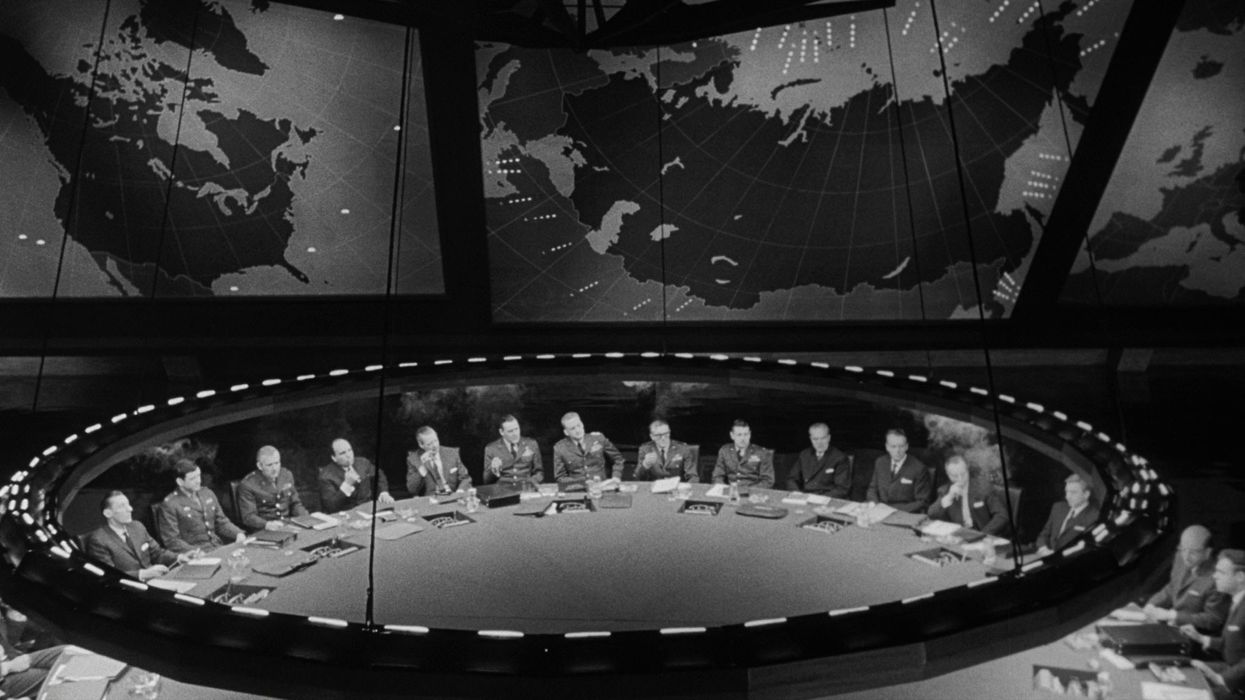RIP Ken Adam, Oscar-Winning Production Designer for 'Dr. Strangelove,' 'Goldfinger'
Ken Adam, production designer who earned two Academy Awards and created the famous War Room set for Dr. Strangelove, died Thursday at his home in London. He was 95.

Adam's two Oscars were earned for his work on Kubrick's Barry Lyndon in 1975, and in 1994 for Nicholas Hytner’s The Madness of King George. Born in Germany in 1921, Adam emigrated with his family to England as the Nazis rose to power. There, he studied architecture and flew for the RAF during the war, where he was known for his feats of daring as a pilot. He worked on films during the 1950s, including Ben-Hur, but it was his contribution to Stanley Kubrick's 1964 dark comedy Dr. Strangelove or: How I Learned to Stop Worrying and Love the Bomb that made his mark on history.
In an interview in 2003, Adam recalled an encounter he had with Steven Spielberg:
“I was in the States giving a lecture to the Director's Guild when Steven Spielberg came up to me. He said, ‘Ken, that war room set for Strangelove is the best set you ever designed.’ Five minutes later he came back and said, ‘No, it's the best set that's ever been designed.’”
Adam worked throughout the '60s, notably on the James Bond film Goldfinger, bringing his futuristic aesthetic to bear on the action franchise, though it was for Kubrick's adaptation of the Thackeray novel Barry Lyndon that he won his first Academy Award in 1975. Shot entirely with natural light and candles using repurposed NASA lenses — Kubrick wanted the film's aesthetic to be true to its 18th century setting — Barry Lyndon was a far cry from the work for which Adam had been associated, but his painterly sets matched the look of the masterpiece perfectly. Kubrick and Adam enjoyed a close, if fraught, working relationship; Adam recalled the production of Lyndon as "nerve-destroying," and he was hospitalized by his wife for exhaustion when she came to visit him on set in the Republic of Ireland.
Adams continued to work on films such as Chitty Chitty Bang Bang, Agnes of God, Crimes of the Heart and The Freshman, earning his second Oscar in 1994 for another film set in the 18th century, The Madness of King George.
Adam became a naturalized citizen of Great Britain and was knighted in 2003 for his service to the film industry and contributions to Anglo-German relations. In 2012, he donated his entire life's work, including his Oscars, to the Deutsche Kinemathek, a major film archive in Berlin.
Source: Variety











![Ethos, Pathos, Logos: 20 Effective Ways to Advertise [Infographic]](https://nofilmschool.com/media-library/ethos-pathos-logos-20-effective-ways-to-advertise-infographic.jpg?id=34064614&width=600&height=600&quality=90&coordinates=560%2C0%2C0%2C0)

